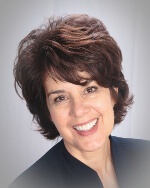|
www.HealthyHearing.com |
Grief and hearing lossFrom denial to acceptance
Contributed by Emily Ostrowski, content manager, Healthy Hearing , and Debbie Clason, staff writer, Healthy Hearing Key points:
Elisabeth Kubler-Ross, a Swedish-American psychologist, wrote about five psychological stages terminally ill patients commonly experience in her book On Death and Dying in 1969. These stages are denial, anger, bargaining, depression and acceptance. 
being diagnosed with hearing loss. At its core, the book is about how we process loss. These stages can be applied to other painful life-changing experiences such as divorce, the death of a loved one, and even coming to terms with hearing loss. "Hearing loss often happens gradually, and we may not be aware of the extent of the problem until it’s clinically diagnosed," said Barbara Kelley, executive director of the Hearing Loss Association of America (HLAA). "A diagnosis can be surprising and may bring sadness and even grief and denial." It's important to keep in mind that not everyone will experience all these stages, and the order of how you experience them can be unpredictable, too. However, the five stages are quite useful for improving self-awareness of how you or a loved one may be coping with a diagnosis of hearing loss. "My hearing is fine. Everyone is just mumbling."In many situations, especially with older adults, hearing loss occurs gradually. As a result, you might not even realize you haven't heard the birds singing outside your window or the sound of your vehicle's turn signal lately. When it comes to misunderstanding conversations with others, you may assume it's because they are mumbling. That's why it's easy to start with denial when a friend or family member mentions that the issue might actually be your hearing. You might tell yourself, "My hearing isn't that bad," or blame it on a recent cold, thinking your ears are just stuffy. Even those who eventually get a hearing test often wait an average of seven years after being diagnosed with hearing loss before purchasing their first set of hearing aids. "I don't want to use hearing aids."When you can no longer ignore that your hearing is declining, you might find yourself moving into the second stage of grief—anger. It’s normal to feel frustrated about having to see yet another doctor or spend money on tests and hearing aids. You might also feel upset with family members who keep asking you to lower the TV volume or urging you to get your hearing checked. This stage of grief is the most likely to be shared by your friends and family. They may be angry too, because they think you're ignoring them on purpose, or they have a hard time understanding why you won't make an appointment to see an audiologist. It's important for everyone to work through the anger. Consider talking to a trusted friend or counselor about what you're feeling, writing in a journal or exercising to release stress and tension. "I'll wear hearing protection to fix my hearing!"After the anger has passed, it's common to enter the bargaining stage and search for ways to restore normal hearing. Maybe it's a promise you make to yourself to wear hearing protection when you're mowing the lawn or keep the volume down when you listen to music. While these are great steps to prevent further hearing loss, it can't reverse the damage that has already been done. This can also be the time when you might start exploring potential "cures" for hearing loss, like essential oils, vitamins, supplements, or listening exercises. While it’s natural to want to find a solution, it’s important to know that these approaches won't reverse hearing loss. Only a visit to a hearing care professional will help you determine why you're having difficulty hearing. There are several causes of hearing loss. The good news is that most people with hearing loss are perfect candidates for hearing aids. Your audiologist can make that determination following an extensive hearing evaluation. "My hearing loss makes socializing too difficult."When you realize it is becoming difficult and exhausting to participate in daily conversations with friends and loved ones, depression sets in. It's natural to feel sad and to avoid those situations where you might feel left out. "People with hearing loss can easily feel isolated and alone," said Kelley. "Withdrawing is common when communication gets too difficult." However, Kelley emphasizes that it's more important than ever for people with hearing loss to stay connected. "One of the biggest determining factors to how well a person deals with hearing loss at any age is whether they have a community of support." In addition to leaning on family and friends, Kelley suggests connecting with others who have hearing loss, whether through support groups or events. "When people get involved, they realize they are not alone, and they start to do better. People tell us after attending a Walk4Hearing event or a chapter meeting, they feel empowered and often they are compelled to help others, too." "Hearing aids can help me enjoy my life."The final stage of grief is acceptance. You might realize that for years, you’ve relied on your partner or others to compensate for your hearing loss, and now it’s time for a change. Research confirms a direct link between hearing aid usage and improved quality of life. Most hearing aid users report higher levels of happiness and say hearing aids have significantly improved their relationships with family and friends and given them a greater sense of independence. Hearing aids also have health benefits, such as reduced rates of depression, social isolation and the risk of falls. Most important, remember you’re never too old for hearing aids. Ask your audiologist to set you up with a hearing aid trial if you're unsure about how they would work for you. Navigating the grief that comes with hearing loss is a deeply personal journey, but accepting your diagnosis is a powerful step toward reclaiming your life. Embracing support and finding the right treatment with a trusted local provider, can make all the difference. This journey isn’t just about treating your hearing loss—it’s about reconnecting with the world around you and living fully once again. Emily Ostrowski, content manager, Healthy Hearing
Debbie Clason, staff writer, Healthy Hearing
|
Featured clinics near me
Earzlink Hearing Care - Reynoldsburg
7668 Slate Ridge Blvd
Reynoldsburg, OH 43068

Find a clinic
We have more hearing clinic reviews than any other site!


 Emily is an experienced journalist and medical content writer based in Maine. Passionate about delivering enlightening and accurate content, she is committed to empowering people to make informed choices regarding their hearing health.
Emily is an experienced journalist and medical content writer based in Maine. Passionate about delivering enlightening and accurate content, she is committed to empowering people to make informed choices regarding their hearing health.
 Debbie Clason holds a master's degree from Indiana University. Her impressive client list includes financial institutions, real estate developers, physicians, pharmacists and nonprofit organizations.
Debbie Clason holds a master's degree from Indiana University. Her impressive client list includes financial institutions, real estate developers, physicians, pharmacists and nonprofit organizations.